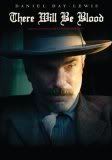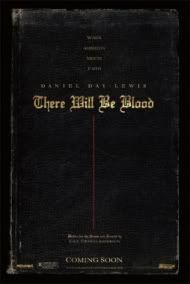***Cross-Posted at Good News Film Reviews***
Should I see it?
Films geeks: Yes.
Actual humans: No.
Should I see it?
Films geeks: Yes.
Actual humans: No.
Short Review: This has been hailed as a masterpiece. When did we redefine “masterpiece” to mean a self-indulgent bore?

Watching a 2 1/2 half hour slide show of what Paul Thomas Anderson ate for breakfast may be more invigorating than watching his sprawling, and ultimately pointless “masterpiece”. This film has been praised to a ridiculous level with easy comparisons to Citizen Kane and other cinematic milestones. There are honestly stunning moments in this work but it is not – and I repeat NOT – one of the greatest movies ever made. If critics would step back and stop belching out overstated and sycophantic articles like this one they’d see that this is unwatchable for most audiences and demands an unfair amount of patience from those of us who are more inclined to put in the time. It is at least forty-five minutes too long (there’s thirty seconds of men hammering stakes into the ground – that’s it, that’s all they’re doing, hammering stakes - where's the editing?), there’s no defined characters outside of the main figure (brilliantly portrayed by Daniel Day Lewis), there’s no deep central external conflict driving the plot and the resolution comes in a dry whimper offering no proposals or reason.
Why is this film getting such overwhelming praise when the piece is so imperfect? First, to be fair, Paul Thomas Anderson is a talented writer/director, he is easily one of the great talents of his generation. The problem is that he is unrestrained with his talents and apparently hasn’t met one of his own ideas he hasn’t liked. His works, Boogie Nights, Magnolia, and Punch-Drunk Love are all moving pieces with stark performances and some great scene work. They are all, just like this piece, also very indulgent and dismissive of the audience. Anderson’s work often feels like someone has taken the podium and refuses to relinquish control it until they’ve had their say regardless if it’s on point or not.
Another reason this is getting such high marks is because Anderson’s crew outperformed him. It is beautifully shot by cinematographer Robert Elswit and the sets and costumes are marvelous. There is a feeling of realness to the whole production that is attention getting. This is a carefully plotted and created film and the attention to detail gives the piece more gravity than it otherwise would have gotten.
The main reason this film is critically acclaimed is easy to identify – Daniel Day Lewis. His portrayal of the cruel oil man Daniel Plainview is one of the great on-screen performances. This is where you’re going to find your masterpiece. Day-Lewis is the film. Now, to be fair Anderson’s script focuses with unblinking concentration on Plainview (to the detriment of the overall piece) and the supporting cast is weak by comparison. Day-Lewis’ performance of this complicated and disintegrating man places him in a realm of achievement in his field rarely reached. His performance is so real, so deep it actually makes this boring film worth sitting through. It is a thrill to see an actor so buried in his character. It is a reminder of how the craft of acting can be transformed into art.
This could have been the masterpiece others would like it to be if Anderson would have stuck with his story. Plainview’s nemesis in the film is the wimpy voiced preacher Eli Sunday, passively portrayed by Paul Dano. Sunday hopes to build a congregation from his small town and compile enough money from them to build a church. As Plainview’s fortunes increase, so do Sunday’s since his congregation is made up in part by Plainview’s employees. In Plainview’s eyes this makes the young preacher a distracting parasite. Sunday claims to be able to heal through channeling the Holy Spirit. When he is unable, or unwilling, to heal Plainview’s son when he goes deaf, the two men are sent on an unavoidable collision. Anderson uses this conflict to burn some matches on the heels of Christianity. But his efforts to show the errors of religion fall flat. Sunday is a straw man that is knocked down to no effect. The character is a caricature and while there are certainly thieves and bad ministers in the world, the one in this film never comes across as real. Much of this has to do with Dano’s pathetic performance. His performance would have been passable in a normal situation but when placed next to Day-Lewis’ groundbreaking performance, Dano looks like a dinner theater version of Harry Powell. The conflict with, or more aptly – the abusing of Sunday was the film’s real story. The story is in the conflict between the material and the heavenly, the contrast of the filthy oil workers and the clean parishioners, greed vs. charity. If Anderson had put more into Sunday to make him into a complete character and if he had cast an actor who could have put more love (and talent) into the role, this film would really have been something special.
To sum it up, if you’re a film geek you’re probably going to enjoy how intricately crafted this piece is. If you’re not a loser, er – film geek, you should avoid this movie like the plague.
Click below to view the trailer

***Spoiler Warning***
The rest of this review ruins the movie
The rest of this review ruins the movie
Worldview: If you do a search for this film it won't take you too long before you find cheerful reviews citing this as some atheistic blow against religion. This film puts the main character Daniel Plainview up against a poorly rendered pastor character named Sunday. The conflict between the two can be taken as Plainview's materialism confronting the false pretenses of Sunday's theology. Plainview and his men spend their lives clawing in the earth trying to extract its oily blood. Sunday slowly builds his church, speaking in a wispy voice and moving with a nearly feminine way. The two lock horns throughout the story with most conflicts end with Sunday being humiliated and defeated. In the final scene, when Sunday attempts to sell some property to him, Plainview having the upper hand forces the preacher to exclaim "I am a false prophet, God is a superstition!" over and over again. Sunday recites this heresy in hopes of making money he dearly needs. Having lured the pastor to literally selling his soul Plainview then beats the man to death with a bowling pin. This undoing of Sunday is taken by some as a symbolic undoing of religion itself. These "some" are what I like to refer to as "morons". Showing a single man, symbol or not, breaking from his loyalties doesn't mean that that which he was loyal to was a fraud. This couldn't be more true than with members of the clergy and their loyalty to God. Christians do not make Christianity - Christ does. The fall of any of its members does not prove the non-existence of God. It simply solidifies the fact that we need him.
The ending of the film is more about the final result of Plainview's doomed soul than about the frailty of theology. Plainview is the personification of the Godless man. He is cruel, petty, materialistic and infertile. He lies, murders and cheats without a second thought. Without God this is what we are, since there is no reasonable point to keeping a strict moral code. Pleasure and might makes right rule the day.
Throughout the film Plainview pushes everything and everyone away. His final act of damning Sunday and then killing him serves to sever Plainview completely since he symbolically kills God with this action. He is finally truly alone in the universe, which is his life's main goal. In the final moment of the film he states "I'm finished" as he rests bloodied and tired on a bowling alley, literally sitting in the gutter. He is the existential hero - alone in the universe and without reason. Yippie! No thanks, I'll cast my lot with God. Having a purpose to life makes it so much nicer to live.
This film unashamedly sets up Christianity to be its whipping boy. The Christians in the film are two dimensional and never approach reality. The leader Sunday is likewise thin. Paul Dano portrays Sunday as an effete charlatan who wouldn't be able to collect a bunch of head lice, let alone parishioners in real life. Anderson's film is so carefully crafted that his poorly drawn preacher sticks out like Rosie O'Donnell kicking in line with the Rockettes. Anderson doesn't give religion a fair hearing and simply puts it out there to kick around. This is a shame because Christianity can withstand the scrutiny and is the only religion deserving of the discussion.
Most Christians will probably look at the portrayal of their faith in this film with a smirk. Its become so pedestrian to see the dimwitted, zombie-like parishioners along with the bellowing preacher, it actually makes me laugh at this point. The stereotype has been so overdone it is embarrassment to Anderson to see it dragged out yet again.
Cautions: There is blood. The violence in this film isn't gory and hardly unsettling to anyone who has been exposed to cinematic violence before. There is a brutal murder that can be disturbing to some viewers however. No sex, the language is mild considering this is an R-rated film. The biggest concern here is all of the time you're going to kill just sitting there waiting for something interesting to happen.







1 comment:
finally got around to watching the infamous There Will Be Blood... Daniel-Day Lewis' performance was top-notch. He takes well to the overbearing, violent father-figure role -- he also did this in Gangs of New York.
Post a Comment